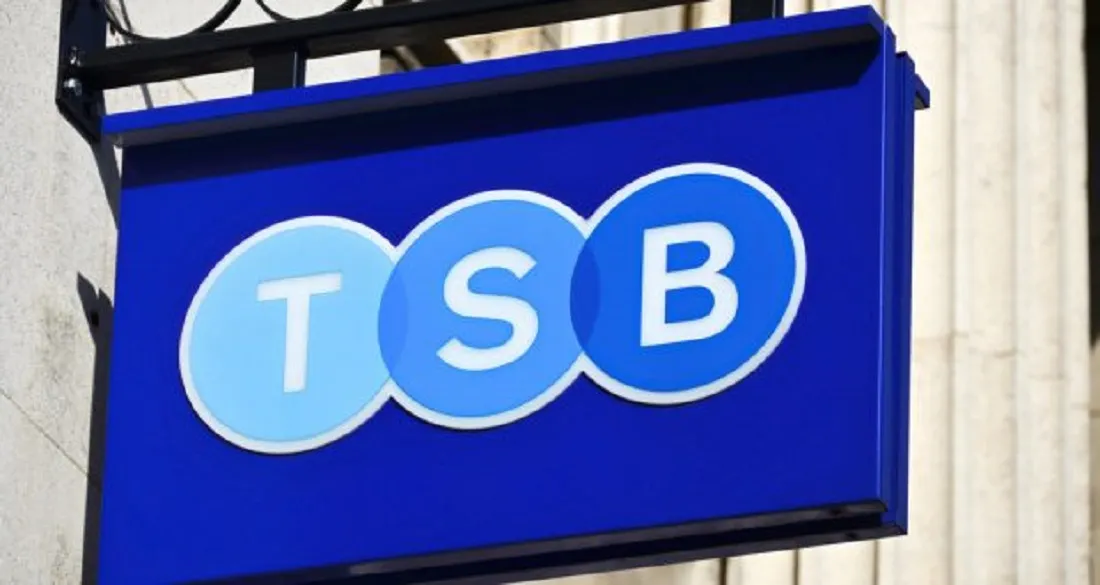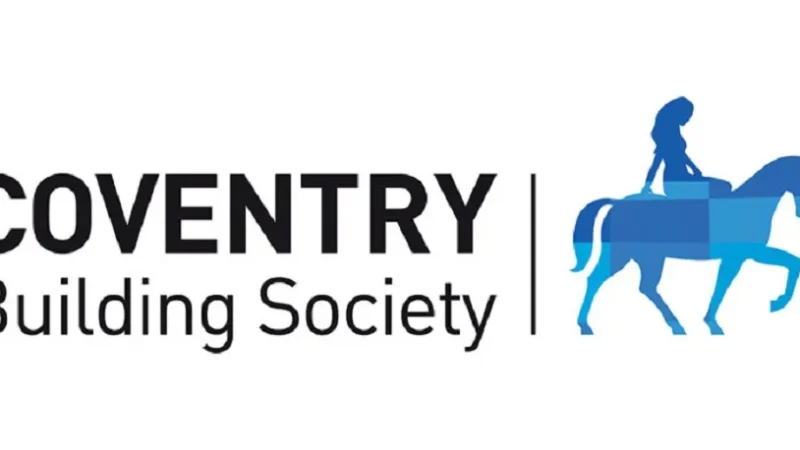How Much Can I Borrow For a Mortgage from TSB Bank

Table of Contents
ToggleHow Much Can You Borrow For a Mortgage from TSB Bank in UK
Securing a mortgage is a significant step towards owning your dream home, and understanding how much you can borrow is essential for effective financial planning. If you’re considering a mortgage with TSB Bank, a well-established financial institution, it’s essential to understand their borrowing limits clearly. In this blog post, we will delve into the factors that TSB Bank considers when determining mortgage borrowing capacity.
By exploring the key considerations outlined by TSB Bank, you can gain valuable insights into their assessment process and better understand how much you may be able to borrow. While the information provided here aims to be informative, consulting directly with TSB Bank or a mortgage advisor for personalized advice and the most up-to-date information on their lending policies is always recommended. Let’s explore the factors impacting your mortgage borrowing capacity with TSB Bank.
1- Income Assessment from TSB Bank for Mortgage
Your income plays a crucial role when determining how much you can borrow for a mortgage from TSB Bank in the UK. TSB Bank conducts an income assessment to evaluate your borrowing capacity based on the following factors:
- Employment Type: TSB Bank considers the nature of your employment, whether you are a salaried employee, self-employed, contractor, or have other forms of income. Each employment type may have different criteria and documentation requirements.
- Income Stability: TSB Bank assesses the stability of your income to ensure that you have a reliable source of funds for mortgage repayments. They may consider factors such as the length of employment, consistency of income, and any anticipated changes in your income shortly.
- Gross and Net Income: TSB Bank considers your gross and net income. Gross income refers to your total earnings before tax and other deductions, while net income represents your income after deductions. TSB Bank may consider your net income to calculate your affordability.
- Additional Sources of Income: If you have additional sources of income, such as rental income, investment returns, or benefits, TSB Bank may include them in the assessment process. These additional income sources can positively impact your borrowing capacity.
During the income assessment, TSB Bank typically applies income multiples to calculate the maximum loan amount you can borrow. The specific income multiples used may vary depending on individual circumstances and TSB Bank’s lending policies.
2- Affordability Evaluation of TSB Bank for Mortgage
In addition to the income assessment, TSB Bank conducts an affordability evaluation to determine how much you can borrow for a mortgage. This evaluation considers your financial situation and helps ensure the mortgage repayments are affordable. Here are key considerations in the affordability evaluation process:
- Monthly Expenses: TSB Bank examines your monthly expenses to gauge your financial obligations. This includes essential expenses such as utility bills, groceries, transportation, and discretionary spending like entertainment and leisure activities. By assessing your expenses, TSB Bank can estimate the income available for mortgage repayments.
- Existing Debts: TSB Bank considers any existing debts you have, such as credit card balances, personal loans, car loans, or student loans. These debts impact your overall financial commitments and may influence your borrowing capacity. TSB Bank evaluates your debt-to-income ratio, which measures the proportion of your income towards debt repayments.
- Financial Commitments: Apart from existing debts, TSB Bank considers other financial commitments you may have, such as child support payments, alimony, or other regular financial obligations. These commitments affect your disposable income and, consequently, your affordability for mortgage repayments.
- Interest Rate and Repayment Terms: TSB Bank factors in the prevailing interest rates and the selected mortgage repayment terms during the affordability evaluation. The interest rate affects the size of your mortgage repayments, and TSB Bank ensures that you can comfortably meet these payments based on your income and expenses.
By assessing your income, expenses, existing debts, and other financial commitments, TSB Bank can determine the maximum mortgage amount that aligns with your affordability. It’s crucial to provide accurate and comprehensive information during the affordability evaluation to ensure a realistic assessment of your borrowing capacity.
3- Loan-to-Value (LTV) Ratio of TSB Bank for Mortgage
The Loan-to-Value (LTV) ratio is important in determining how much you can borrow for a mortgage from TSB Bank. The LTV ratio represents the percentage of the property’s value you need to borrow. Here’s what you need to know about the LTV ratio and its impact on your borrowing capacity:
- Calculation: The LTV ratio is calculated by dividing the loan amount by the appraised value or purchase price of the property (whichever is lower). For example, if you are borrowing £200,000 for a property valued at £250,000, the LTV ratio would be 80% (£200,000 divided by £250,000).
- Deposit Size: The deposit you contribute towards the property purchase affects the LTV ratio. A larger deposit reduces the loan amount needed and lowers the LTV ratio, while a smaller deposit increases the loan amount and raises the LTV ratio. TSB Bank typically sets minimum deposit requirements that you need to meet to qualify for a mortgage.
- Impact on Borrowing Capacity: The LTV ratio directly impacts your borrowing capacity. Generally, a lower LTV ratio is viewed more favorably by lenders, as it indicates a lower level of risk. With a lower LTV ratio, you may have access to larger loan amounts and potentially more competitive interest rates.
- Maximum LTV Ratio: TSB Bank sets maximum LTV ratios based on their lending policies. This means they have a limit on the percentage of the property’s value that they are willing to lend. The maximum LTV ratio may vary depending on the property type (e.g., residential, buy-to-let), property location, and other lending criteria.
- Mortgage Insurance: In some cases, if the LTV ratio exceeds a certain threshold, TSB Bank may require you to obtain mortgage insurance. Mortgage insurance protects the lender in case of default and is an additional cost when determining your borrowing capacity.
It’s important to note that the LTV ratio is just one of several factors TSB Bank considers when determining your mortgage borrowing capacity. Other factors, such as income assessment, affordability evaluation, and creditworthiness, also play significant roles in the decision-making process.
4- Creditworthiness Assessment of TSB Bank for Mortgage
When applying for a mortgage from TSB Bank, your creditworthiness is essential to the borrowing decision. TSB Bank assesses your creditworthiness to evaluate the risk associated with lending to you. Here are key considerations in the creditworthiness assessment process:
- Credit Score: TSB Bank reviews your credit score, a numerical representation of your credit history. A higher credit score indicates a healthier credit profile and responsible credit management. TSB Bank uses credit scores as an initial indicator of your creditworthiness.
- Credit History: TSB Bank evaluates your credit history, which includes your repayment patterns on existing and previous credit accounts. They look for a consistent record of timely payments and responsible credit behavior. Instances of late payments, defaults, or bankruptcy may negatively impact your creditworthiness.
- Outstanding Debts: The amount of outstanding debts you have, such as credit card balances, personal loans, or car loans, is considered in the creditworthiness assessment. TSB Bank looks at your debt-to-income ratio to understand your ability to manage and repay your debts alongside a mortgage.
- Financial Stability: TSB Bank assesses your financial stability, including your employment history and income consistency. They consider factors such as the length of employment, stability of income, and the likelihood of continued income in the future.
- Affordability: While affordability is also evaluated separately, TSB Bank may consider it part of the creditworthiness assessment. They want to ensure you can comfortably manage the mortgage repayments based on your income and financial commitments.
Based on the creditworthiness assessment, TSB Bank determines the level of risk associated with lending to you and adjusts its lending decision accordingly. A strong creditworthiness profile may result in more favorable borrowing terms, such as lower interest rates or higher borrowing limits.
5- TSB Bank's Specific Policies and Criteria for Mortgage
When considering a mortgage from TSB Bank, it’s important to familiarize yourself with their specific policies and criteria. While these policies may vary over time and depend on individual circumstances, here are some key aspects to be aware of:
- Residency Status: TSB Bank typically requires borrowers to be residents of the UK. They may have specific residency status criteria and require proof of residency, such as a valid UK passport or residency permit.
- Property Type: TSB Bank has guidelines on the properties they finance. They commonly provide mortgages for residential properties, including houses and flats. However, they may have specific restrictions or criteria for certain property types, such as new builds, leasehold properties, or properties with commercial elements.
- Minimum and Maximum Loan Amounts: TSB Bank sets minimum and maximum loan amounts they are willing to lend. These limits may be influenced by the property’s value, your income, and the loan-to-value (LTV) ratio. Contact TSB Bank or a mortgage advisor for specific information on their current loan amount criteria.
- Age Restrictions: TSB Bank may have age restrictions for mortgage applicants. They may require borrowers to be within a certain age range to qualify for a mortgage. The age restrictions and considerations for older borrowers can be obtained directly from TSB Bank or a mortgage advisor.
- Eligibility Requirements: TSB Bank has specific eligibility requirements that borrowers must meet. These may include income, employment status, credit history, and financial stability criteria. Understanding and fulfilling these eligibility criteria is crucial for a successful mortgage application.
- Documentation and Verification: Like other financial institutions, TSB Bank requires supporting documentation and verification of information during the mortgage application process. This may include proof of income, bank statements, identification documents, and details of existing debts. Be prepared to provide the necessary documents as per TSB Bank’s requirements.
Conclusion:
When considering a mortgage from TSB Bank, it’s crucial to understand the factors determining how much you can borrow. TSB Bank assesses various aspects to determine your borrowing capacity, including income assessment, affordability evaluation, loan-to-value (LTV) ratio, creditworthiness assessment, and their specific policies and criteria.
The income assessment considers factors such as your employment type, income stability, and additional sources of income. TSB Bank evaluates your affordability by considering your monthly expenses, existing debts, and financial commitments. The LTV ratio, influenced by your deposit size, represents the percentage of the property’s value you need to borrow.
Your creditworthiness, determined by your credit score, credit history, outstanding debts, and financial stability, is also considered. TSB Bank has specific policies and criteria regarding residency status, property type, loan amounts, age restrictions, and eligibility requirements.
To obtain accurate information about how much you can borrow for a mortgage from TSB Bank, it’s advisable to contact the bank directly or consult with a mortgage advisor. They can provide personalized guidance based on your circumstances and help you navigate the mortgage application process.
Remember, the specific borrowing limits and policies of TSB Bank may change over time, so it’s essential to stay informed and seek the most up-to-date information when considering a mortgage with TSB Bank.






